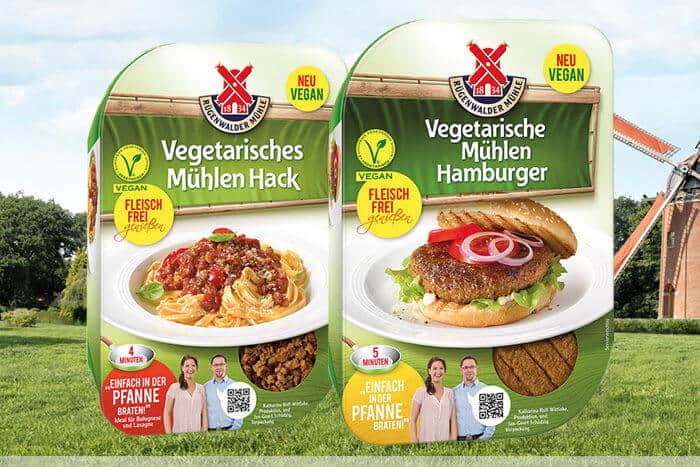Rügenwalder Mühle is a family business that started in 1834, in the town of Rügenwalde, Germany, known for its sausage specialties. The company is expanding its portfolio to cater to the growing number of flexitarians, vegetarians and vegans by offering a new array of products, such as vegan sausage and vegetarian salami.
These products can be found on the self-service meat shelf or in the self-service meat chest. We spoke with Michael Hähnel, the company’s CEO, to find out more.
Rügenwalder Mühle is now starting to grow its own soya – why?
We are always looking for proximity to suppliers and producers. That is how we ensure high quality. Consumers are always conscious of the origin and ingredients of the food they buy. Above all it is a crucial factor for our goal of becoming more and more sustainable: Because the shorter the transport, the greater the savings in C02 emissions. That is why already 50 percent of our soya comes from Europe resp. the Danube region. Now we want to take the issue to the next level and have started a pilot project with the cultivation of our own soya beans in Germany. The acreage comprises one field each in North Rhine-Westphalia and Brandenburg, each with 25 hectares. So far it is looking very good and we hope to be successful with the pilot project.
Does that mean your products will only be available with specially and locally grown soya in the near future?
No, it will still take some time before we can meet our needs for soya from domestic cultivation. With the pilot project, we have taken the first courageous step in this direction.

What does courageous mean? Is cultivation of soya beans that complicated?
Absolutely! The region where the soya is cultivated is a determining factor when it comes to taste and colour of the raw material. Therefore, the meat alternatives may suddenly taste different. Tests will show with which vegetarian / vegan products we can process the regional soya.
What’s next?
If the pilot project is successful – that is, if the soya bean plants continue to grow well and produce high-yields – the harvest will take place in September. After that the soya beans will be refined using the vegetarian / vegan products. In the coming year, we could cover ten percent of the total demand with these soya beans and gradually increase the share over the next few years. It is very important to us for consumers to see exactly where the raw materials come from and what kind of C02 footprint a product has. This is the only way consumers can make their own choices when it comes to food and eating consciously. We are therefore supporting the petition for legal CO2e labelling of food. This should enable consumers to see immediately how large the carbon footprint of a specific product is.





